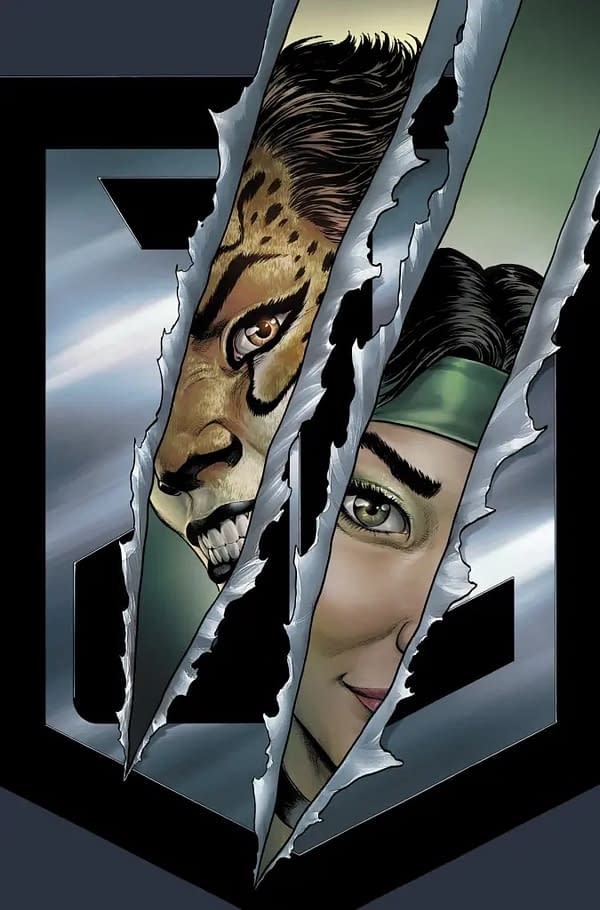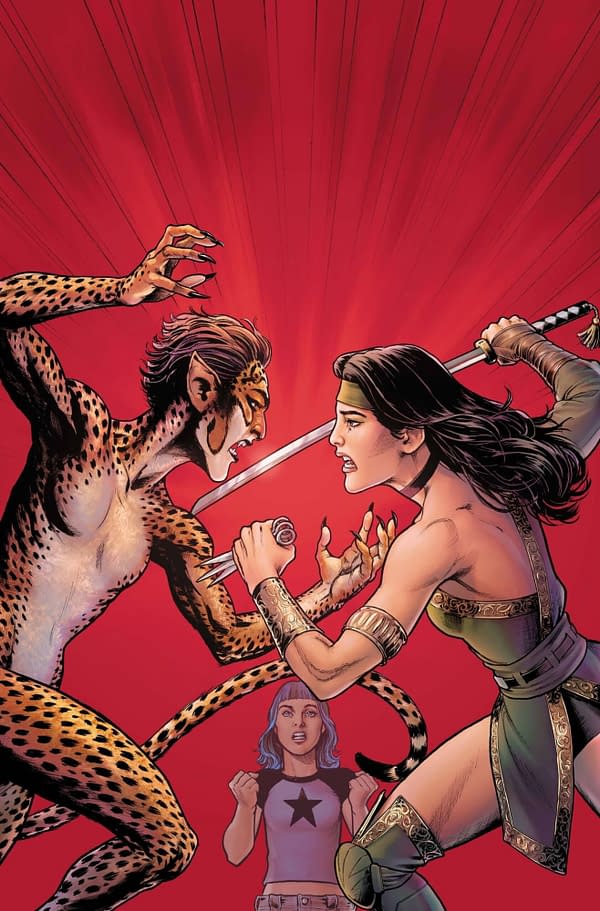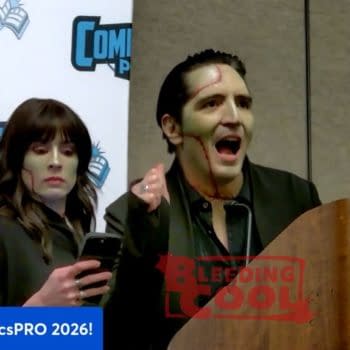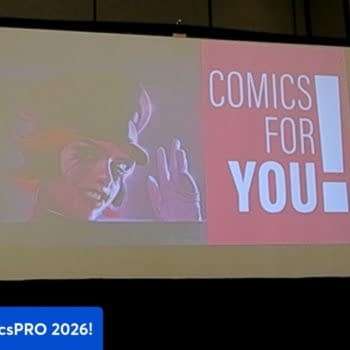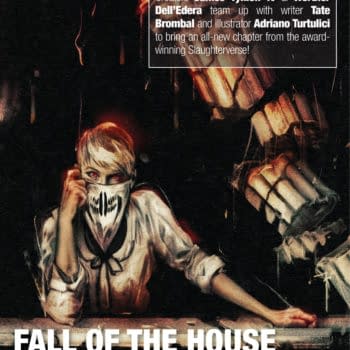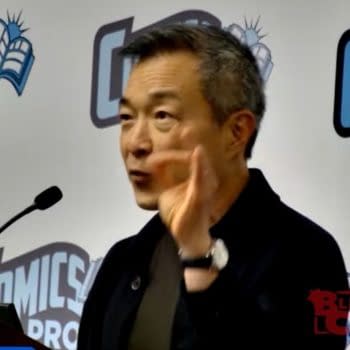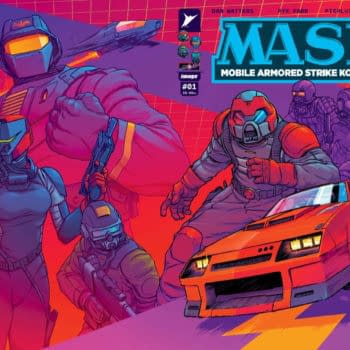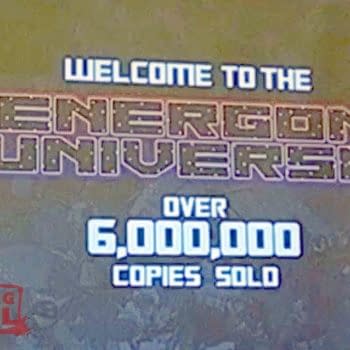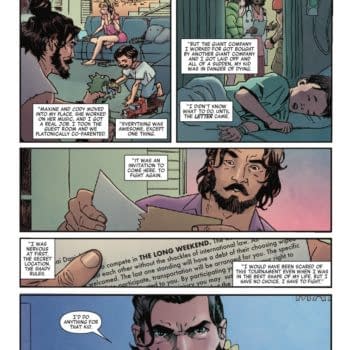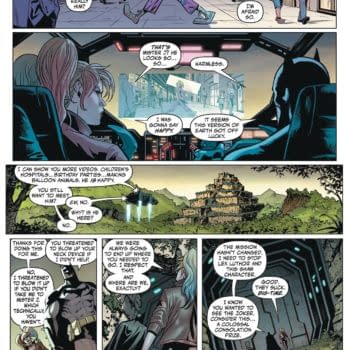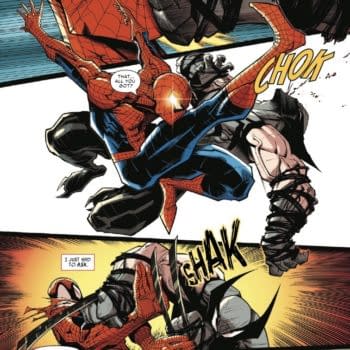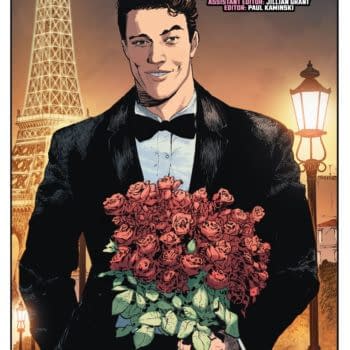Posted in: Batman, Comics, DC Comics, Superman | Tagged: dan didio, geoff johns, greg rucka, Word Balloon
Greg Rucka On Dark Times At DC Comics With Dan DiDio & Geoff Johns
Greg Rucka on the darkest times at DC Comics with Dan DiDio and Geoff Johns
Article Summary
- Greg Rucka reveals toxic work culture at DC Comics under Dan DiDio and Geoff Johns from 2006 to 2009
- Rucka describes broken promises, manipulation, and mental health struggles during his DC tenure
- He credits new DC editorial leadership for a positive, collaborative environment in recent years
- Rucka discusses possible Gotham Central return, Marvel experiences, and his passion for DC stories
John Siuntres of the podcast Word Balloon just interviewed Greg Rucka about his work in and outside comic books. That included his return to DC Comics with the Cheetah & Cheshire Rob The Justice League mini-series with Nicola Scott and why he may have been away for so long.
- Cheshire And Cheetah Rob The Justice League
- Cheshire And Cheetah Rob The Justice League
Siuntres mentioned that DC Comics was republishing the 2008 War Of The Supermen comics book event ahead of the Supergirl movie, which saw writers Greg Rucka, James Robinson and Sterling Gates working together. Or not. Greg Rucka says;
"That was me at my absolute lowest at DC. That was in the deep end when everybody was lying to me, using me, betraying me, abusing me. My relationship with James was a bad one. He was writing whatever he wanted. We were not collaborating well. Collaborating with Sterling was great—literally was the best thing about that period. But it was just a repeated kick between the legs."
He elaborated, talking about DC Comics executives, former Publisher Dan DiDio and former CCO Geoff Johns.
"It was toxic when I was there and remained toxic until Dan DiDio left. It was an abusive, manipulative environment. Geoff Johns was an incredibly manipulative person to me – used me, lied to me, played me off against people. DiDio did the same thing. I was made promises repeatedly, and they were always broken. When I left in 2009, I was mentally ill. I was severely depressed, suicidal. I nearly took my life. And that's all the direct result of the way I was treated from 2006 through 2009, it was done with malice. The people I'm speaking about are bad actors. I'm not in a place where I will ever defend them again. They did what they did with malice of forethought."
Greg Rucka returned to DC Comics for Wonder Woman and DC Rebirth in 2016, and again with Brian Bendis' Wonder Comics in 2019. He recalled;
"When they came to me in 2016, they were on their knees, saying, "We have a Wonder Woman movie coming out, and we've forked the character into a cocked hat" … "screwed the pooch." They said, "We need to get it fixed. We want you to do it. What will it take?" I gave them a list of demands, made them put it in writing, which is how you got me back in 2016. At the end of that first year, they said "well, we're going to do it again, we want you to keep going", and I said "this isn't sustainable. And I told you I could only do it for a year". So that's when I walked away. In 2019, I came back because Brian Bendis and Matt Fraction were coming in, and there was an intention we'd work together. And when I came in at that point, I was told, "We don't need to make guarantees because we've proven we'll do what we said." Like an idiot, I said, "Okay," and they proceeded to fork me… So when that ended, I walked away. They came back a couple of times, but I stayed away."
So what changed?
"June of last year at Heroes Con, an editor whose name escapes me, came by and said, "Cully [Hamner] said I should talk to you. Are you willing to talk?" I said, "I'm always willing to talk." Word got back that the door was open. So Rob Levin called me and said, "Here's what we're doing." He poured enough poison in my ear about the Cheetah and Cheshire thing to make me go, "Ooh, now I'm intrigued." We had a serious conversation. I said, "I've had bad experiences. I'm not going to do that again, I'm not going to go back to that." He said, "I know what you're talking about, and I know what you are describing, and that's not us now." When I was there, literally, editorial groups were at war with each other. That's not on the editors, that's from the top down, that's from the COO and that's from Dan. They didn't allowing it to happen, they made it happen."
At the time, Bleeding Cool reported on what we called an intercine rivalry between the coasts of DC Comics, of Dan Didio and Geoff Johns, and how that played out in the New 52 or the treatment of Poison Ivy, with Scott Snyder Island as some kind of Switzerland neutral state. It would eventually lead to Dan Didio being fired in 2020 after then-President Diane Nelson resigning and Geoff Johns was pushed out in 2018. There were also a lot of staff layoffs that followed. But it seems that things have really changed at DC, and for the better. Greg Rucka writes;
"I'm going to be perfectly honest. It's a different company right now. The people there—it's healthy… Rob made it clear to me, he said "it's different now. Editorial gets along and we communicate". And I said, "All right, well, I'll believe that when I see that, but I'm happy to talk." And then I got to see it. And Rob is absolutely correct. There are three group editors that I am in communication with, and they talk to each other so much it's almost a problem, right? It creates an environment where that's putting out somne of the best stuff DC's done in the last 10 to 15 years… It's a positive environment. People are working together, and they're not working in fear, they're collaborating… I've never written anything that couldn't benefit from another set of eyes. I want to be able to talk to an editor and be able to say, "This is what I'm thinking. I'm not sure if this works." And have them say, "Okay, I don't think it does work, but have you thought about this?" I am working with three separate editors at DC right now. All of them have been terrific. The last time I was able to work with editors who were that good was in 2016 when I was able to pick the editors I was working with. And before that, I got to go back frankly to Denny's [Dennis Oneill] bat group. And that's not to say the editors that I worked with, for instance, on Gotham Central, Matt Idleson, Nachie Castro, were bad people or bad editors. They were great at their jobs. But the environment was growing more and more toxic crazy."
"I've really come to a place where I'm like, "Oh, no. I can see I can see what was done." And I can see now the truth of it. And I can see also some common denominators of things. There are certain things that I have realized about people who I was working for and working with who were very careful about hiding it about themselves… I've had a lot of realizations in the last year, and some of them have been like, "Oh, oh, this person was an anti-semite from the start. this person didn't like me because I was a Jew… I'm not interested in protecting anybody's legacy anymore. I'm just not. I'm not."
And as for returning to Gotham Central, the seminal series he wrote with Ed Brubaker, there is a possibility. He writes
"I did it without Ed for 15-20 issues, so I'm not precious about it. An editor mentioned doing a Gotham Central Black Label thing, and I could see it if I had an idea. For Detective Comics #1100, they wanted something Gotham Central-ish. I didn't have an idea initially, but Jessica Barby, an associate editor, suggested a story about a coroner or medical angle. I'd been watching The Pit and reading The Knife and Gun Club, about Denver's trauma center. It got me thinking—what's Gotham like before and after Batman if you're in a trauma center? I kind of want to do a medical drama set in Gotham now. But when we proposed Gotham Central, they wanted to call it Batman: Gotham Central, which meant Batman had to be in it. That's not what it's about—it's about Batman's effect. People love Gotham Central, but it never sold well. We're barely moving copies of Cheetah and Cheshire now, so I don't see DC approving a six-issue series about Vanity working in Gotham General."
And as for Marvel Comics?"
"Marvel has never ever liked me. Every time I go to Marvel, it ends badly. They say, "Come here, come here, please, please, please." And then I inevitably get fired or lied to. Marvel is never going to call me and say, "Please come and play in our yard." And that's fine. Marvel's yard only has a few characters I'm actually interested in. DC's Yard is where my heart is. I'm not saying no, but I've never been the flavor of the month at Marvel. As I am fond of telling people, I am the only guy to take Wolverine out of the top 10. He was he was selling great until Darick Robertson and I took over. And then they were like, why is he not wearing a costume and stabbing people all the time? And I was like, that's not the story we're telling. And Marvel is like, "Oh, what have we done?" You know, when is he leaving the book?"
As for that darkest time he mentioned earlier,
"I wasn't really telling people about it. I was in the hole. But yeah, literally December 2012, I had to call a friend to say, "I need you to come here and take this firearm out of my home. Because I am afraid of what I will do with it if I am left alone."
We are glad to hear that Greg Rucka is in a better place. But Bleeding Cool would like to remind readers that if you or someone you love is in crisis, there are several ways of seeking help. In the UK and Ireland, Samaritans can be contacted on freephone 116 123, or email jo@samaritans.org or jo@samaritans.ie. In the US, you can call or text the National Suicide Prevention Lifeline on 988, chat on 988lifeline.org, or text HOME to 741741 to connect with a crisis counsellor. In Australia, the crisis support service Lifeline is 13 11 14. Other international helplines can be found at befrienders.org.


